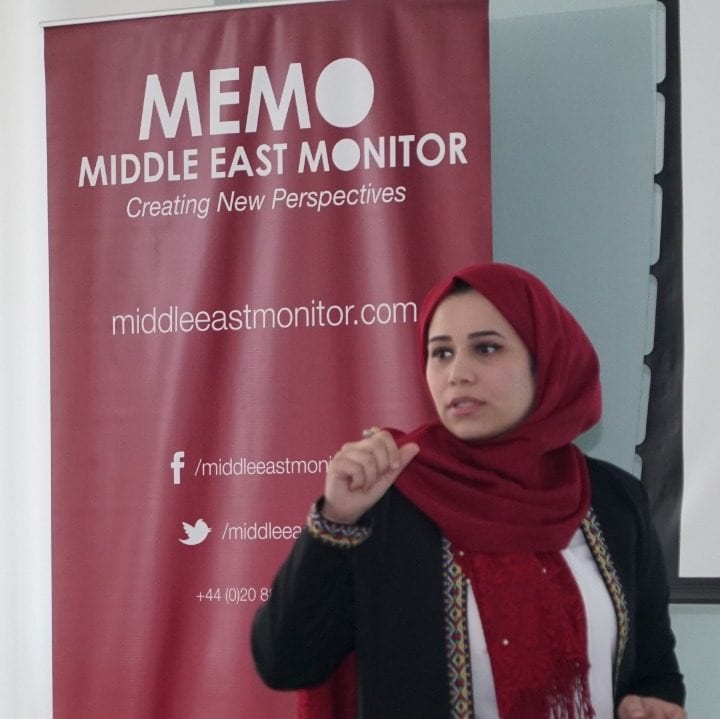Brazil is the world’s fifth-largest country in terms of area and population and has around 1.5 million Muslims who fast during the holy month of Ramadan every year. Coronavirus restrictions on the communal aspects of the month, including prayers, are still in place. As elsewhere, in Brazil, the meal to break the fast at sunset, called iftar, is normally shared with family and friends, but because of the lockdown, such get-togethers are restricted. This is the second Ramadan of the coronavirus pandemic, and officials have warned Muslims not to gather in mosques or share such precious iftar moments with their loved ones outside their immediate household.
The country is in the grip of a health and social crisis, with the world’s second-highest death toll from Covid-19 at over 408,000 people; its hospitals and healthcare services are nearing collapse. When the pandemic hit Brazil, many people lost their jobs. Unemployment is at a record high of 14.6 per cent. Moreover, 60 per cent of Brazilian households have food insecurity, Reuters has reported. And all the while, hospitals fill up, the food queues grow longer and the shattered country watches helplessly.
The Muslim community in Brazil, however, is not standing idly by but is trying hard to compensate for what the virus has taken from them during Ramadan.
READ: Saudi Arabia, Ramadan will be 30 days
I spoke with Jihad Hammadeh, the president of the Cinco Pilares Institution (ICP) for Humanitarian Aid and he explained what the organisation is doing during this blessed month. “Life has basically stopped here, but charitable work has not,” he told me. “Our institution is taking the responsibility to distribute food, money and cleaning materials to needy families. In Ramadan, more than 2,000 food baskets have already been distributed, and food is available for iftar in a number of locations around the country.”
Mosques have been unable to allow worshippers to enter as normal; if not suspended altogether, congregational prayers take place with social distancing in place, including the extra night prayer, Tarawih, unique to Ramadan. The restrictions mean that the normal Ramadan tents serving iftar meals at sunset and suhoor meals before dawn are not allowed to operate. That is why confirmed Hammadeh, the decision was taken to distribute food parcels, although some localised iftar provision has been possible with strict limits on numbers.
“The food kits are being distributed while taking every necessary precaution to protect the beneficiaries and the volunteers,” he said, pointing out that ICP serves food to Muslims and non-Muslims alike because the situation is tough for everyone.
Ramadan is not just about fasting and food, though. Lectures and events to encourage spiritual development are normally held. According to Hammadeh, online alternatives are in place so that people don’t miss out on this important aspect of the holy month. “We can stay in touch with the people we love through social media, apps, and the phone. Those who cannot take part in our live zoom sessions can catch up later on our YouTube channel so that they do not feel disconnected from the community.”
![The Tarawih prayer unique to Ramadan is held with social distancing in place in a mosque in Brazil [Facebook screenshot]](https://i0.wp.com/www.middleeastmonitor.com/wp-content/uploads/2021/05/4-1.jpg?resize=788%2C592&ssl=1)
The Tarawih prayer unique to Ramadan is held with social distancing in place in a mosque in Brazil [Facebook screenshot]
YOUVEBEENSERVED: Shourba Libiya
For Jihad Hammadeh and the team at the Cinco Pilares Institution for Humanitarian Aid, the work does not end when the month of Ramadan ends. Support is extended to those who need it on the Eid festival at the end of Ramadan as well as throughout the year.
“We are preparing Eid gifts for families and children,” he concluded. “We try hard to bring happiness to the hearts of Muslims and non-Muslims. It’s what ICP does.” Life goes on despite the restrictions.

![Cinco Pilares Institution volunteers serving the iftar meal in Ramadan 2021 [ICP]](https://i0.wp.com/www.middleeastmonitor.com/wp-content/uploads/2021/05/cover-e1620210244622.jpeg?fit=920%2C614&ssl=1)

![Cinco Pilares Institution (ICP) for Humanitarian Aid [ICP]](https://i0.wp.com/www.middleeastmonitor.com/wp-content/uploads/2021/05/3-1.jpg?w=401&h=713&ssl=1)
![Cinco Pilares Institution (ICP) for Humanitarian Aid [ICP]](https://i0.wp.com/www.middleeastmonitor.com/wp-content/uploads/2021/05/1-1.jpg?w=511&h=382&ssl=1)
![Cinco Pilares Institution (ICP) for Humanitarian Aid [ICP]](https://i0.wp.com/www.middleeastmonitor.com/wp-content/uploads/2021/05/2-2.jpg?w=511&h=327&ssl=1)






